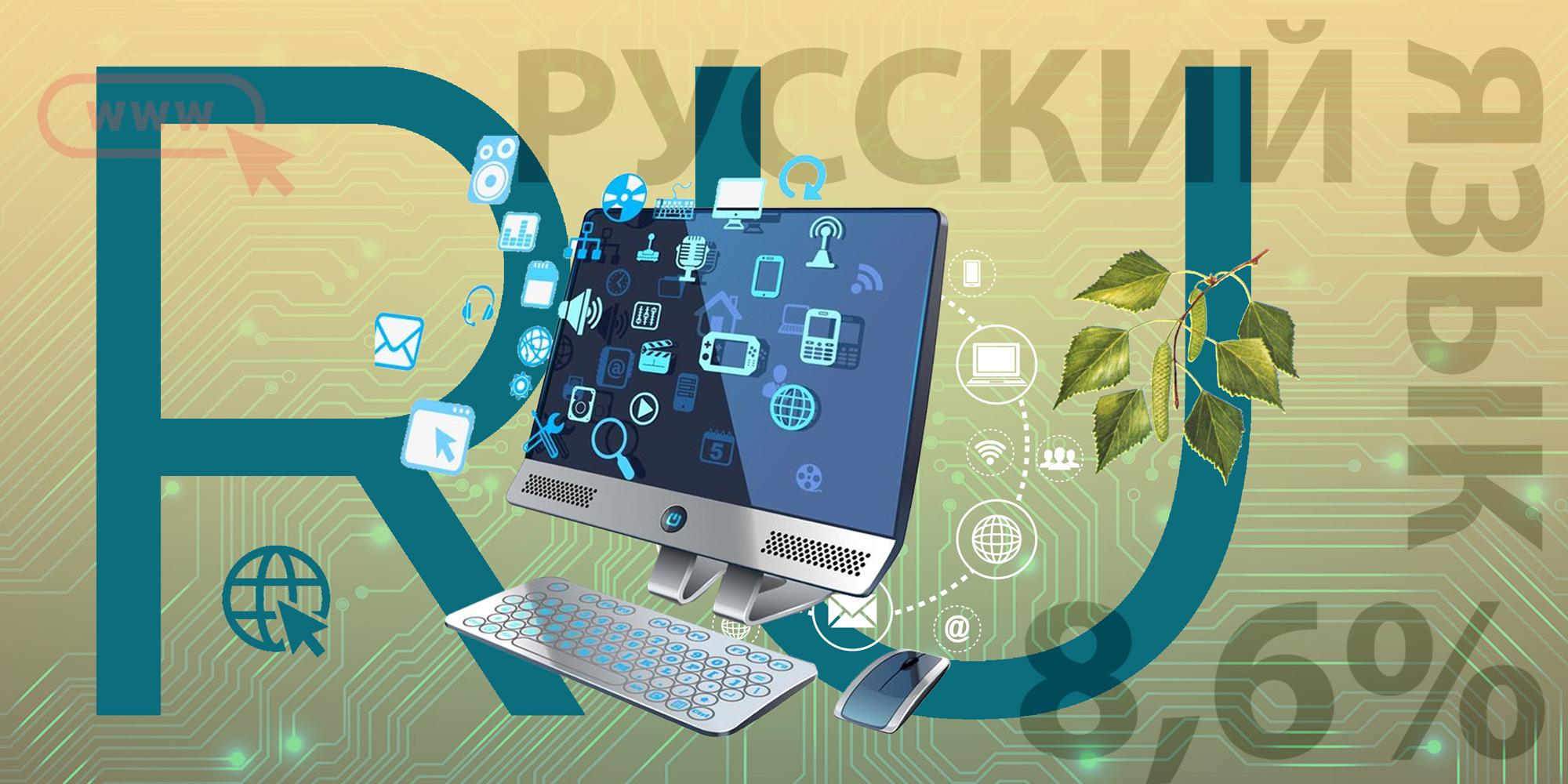
The potential of the Russian-speaking market is usually underestimated. This is because the majority of language industry assessments are focused primarily on Russia as the key market and overlook the use of the Russian language worldwide. Another reason is the widespread misperception of underdevelopment or slowdown extrapolation to all economic sectors. Russian, meanwhile, accounted for 8.6% of Internet content in May 2020, making it the second most popular language online. Is there any knowledge gap?
The CIA World Factbook indicates Russian as an official language in the Russian Federation, Belarus, Kazakhstan and Kyrgyzstan. It is also still widely used in other former Soviet Union countries: in Ukraine, for example, a significant part of the population are Russian native speakers. Russian is identified as a minority language in the Baltic states, Finland and Cyprus.
In Israel, Russian has become the third most spoken language and is used by 15% of the population, though it has no official status. However, unlike other immigrant languages, it is not restricted to home use and has penetrated virtually all spheres of public life. To respond to this challenge, the Israeli government and some municipal authorities have provided limited Russian versions of their official websites. Other substantial Russian-speaking communities are present in Germany and the U.S.
An estimation of the size of the Russian-speaking market thus points to around 258 million potential consumers, in contrast to the 145 million citizens of Russia itself. The British Council’s report ‘Languages for the Future’ makes clear the value of Russian, ranking it in its top 10 languages of crucial importance for the UK’s future prosperity, security and influence.
Russian-speaking people worldwide are actively moving online, with a total of about 161 million Internet users as of January 2020. This is comparable with the number of Internet users in Benelux, Germany and France together. Mobile subscriber penetration has reached 163% with a rising percentage of smartphone use and access to the mobile Internet. This steady trend looks promising for m-commerce. Another noticeable sign of this boom is the level of Internet penetration among Russian seniors aged 65+, as reported by the Russian Association of Electronic Communications.
The market requires solid support from the translation industry. Existing language-related studies clearly indicate that consumers prefer to engage with content in their native language. This conclusion, which is valid even for multilingual Europeans, is an axiom in the case of Russians. According to VCIOM’s latest Learning Foreign Languages survey, Russians, to a certain extent, speak English (63%), though only 5% can confidently say they are fluent in it.
Data from TranslationRating.ru place the size of the Russian language services market at US$ 293 million in 2019. This does not, however, include the global Russian-speaking segment. Taking into account the growing online presence of the Russian language, the market potential is as high as US$ 400 million.

The landscape of the Russian-speaking Internet segment and its services – known as Runet – is radically different from that in Europe. First of all, Russians and Russian native speakers from the FSU countries go local when it comes to online services. As a result, Russian is the language of online business and e-commerce. Translating into Russian helps to boost a brand’s search engine presence thanks to Yandex, an engine which, unlike others, is able to recognise Russian inflection in search terms.
The GAFA titans (Google, Apple, Facebook and Amazon) are in a much weaker position due to strong local players. Russia is one of the few countries with an almost complete ecosystem of platforms and services independent of Silicon Valley. Yandex is not just Russia’s Google, but also Russia’s Amazon and Uber. Facebook does not enjoy the same primacy. The homegrown social media platform VKontakte with 83% of coverage in Russia is dominant among Russian speakers.
The majority of states with Russian native speakers belong to the group of developing countries. Despite this, the “notional GDP” created by the Russian-speaking community worldwide would be ranked as the 8th largest economy in 2019.
The traditional commodity markets still remain attractive. However, nanotechnology, new materials, biomedicine, AI and robotics are also areas in which foreign investors are showing strong interest. Russian high-tech giant Yandex has turned its AI initiatives into self-driving, virtual assistance and navigation technologies. And this is no coincidence: Russia, like other former Soviet Union countries, has an outstanding history of scientific development with a focus on the STEM fields. Electronics, for instance, is a core sector of Russia’s overall industrial system. The space sector is another STEM symbol of pride. That is why Russian is a language of particular relevance for NASA. A two-year base contract signed in 2012 for Russian language services for the International Space Station Program was valued at US$ 19.9 million with a total potential worth of up to US$ 102.8 million.
There is a gap in the market for content in Russian due to the significant differences with the European, Asian or American e-commerce. Thus, selection of the right LSP partner with solid insights and experience in local technologies and transcreation is crucial for a successful Russian-speaking market entry.